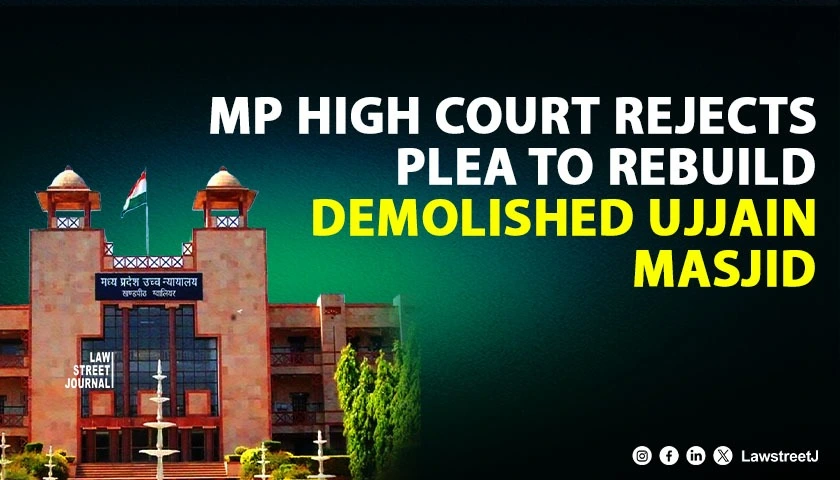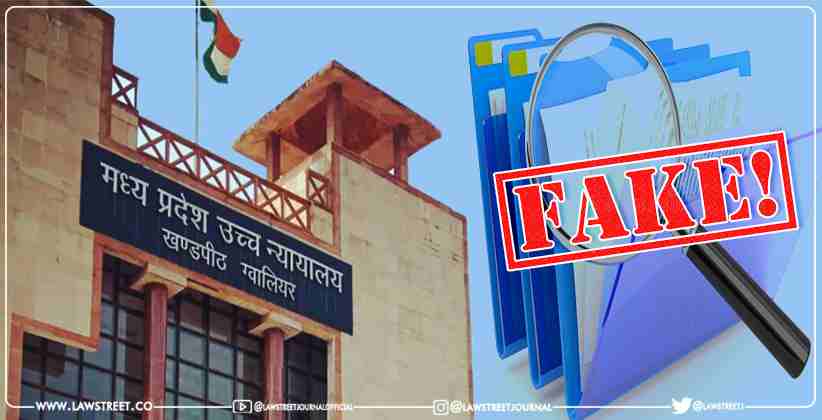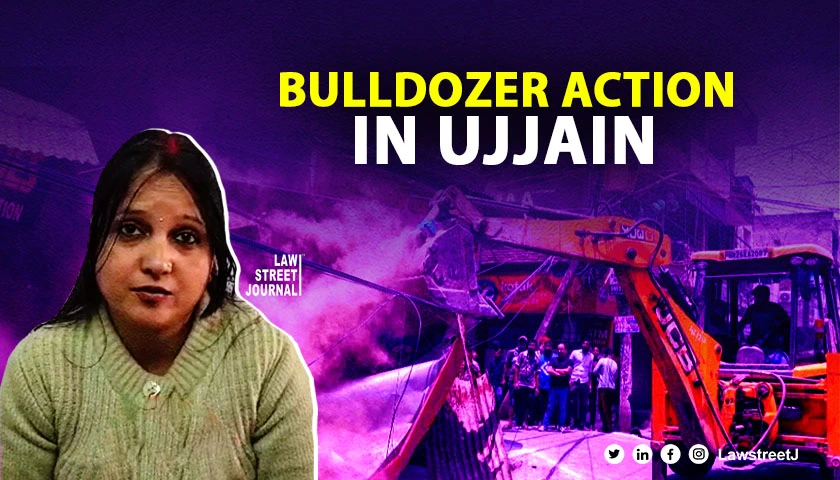Madhya Pradesh: The Madhya Pradesh High Court has delivered a significant judgment dismissing an appeal seeking reconstruction of Takiya Masjid in Ujjain, emphasizing that the right to practice religion is not tied to any particular place and that land acquisition proceedings had attained finality.
The Division Bench comprising Justice Vivek Rusia and Justice Binod Kumar Dwivedi made crucial observations on the scope of religious rights under Articles 25 and 26 of the Constitution of India in the context of lawful land acquisition.
The court addressed Writ Appeal No. 2782 of 2025 filed by Mohammed Taiyab and others seeking to set aside the order dated 04.09.2025 passed by the Writ Court dismissing their petition.
Addressing the background of the case, the court observed, “The petitioners are local residents of Ujjain and used to offer namaz in Takiya Masjid situated at Survey Nos. 2324, 2325, 2326, 2327, 2328 and 2329 of Revenue Circle-3, Tehsil-Ujjain. The said Masjid was established around 200 years ago and declared as Waqf property by publication in the Official Gazette Notification dated 13.12.1985.”
The court highlighted the circumstances leading to the demolition, stating, “To expand the parking space of the Mahakal Lok Parishar in Ujjain, respondents No.1 to 4 initiated land acquisition proceedings. After acquiring the land on which the Masjid was situated, the respondents demolished the Masjid on 11.01.2025.”
In a critical observation about the petitioners’ standing, the court stated, “The petitioners are seeking relief of reconstruction of the Masjid and an enquiry against the respondents. Admittedly, the Masjid and the land have been acquired by following due process of law.”
The court emphasized the finality of the acquisition proceedings, noting that “acquisition proceedings had attained finality and a civil suit has been instituted by the Waqf Board against the State Government claiming the right to receive compensation.”
Regarding the relief sought, the court observed, “Although the petitioners are challenging the acquisition proceedings, they have not sought quashment of the same in the relief clause; therefore, without seeking relief of quashment of the acquisition proceedings and award, the relief of restoration of the property and the consequential relief of reconstruction and possession cannot be granted.”
The court relied heavily on the Allahabad High Court judgment in Mohammad Ali Khan vs. The Special Land Acquisition Officer (1978), stating that “a person may go to a particular mosque to offer prayers if it exists; he may go to another mosque if the one in which he offered prayers earlier ceases to exist, or he may offer prayers even in his house or elsewhere.”
The court also addressed the fundamental right under Article 25, observing, “The profession, practice and propagation of religion guaranteed in Article 25 is a personal right which has to be exercised by the individual. It has no nexus with the place or territory where it has to be exercised. After the acquisition of the property, the right to use that property for offering prayers may be lost; however, that does not militate against the guarantee contained in Article 25 of the Constitution.”
In its final directive, the court stated, “In view of the above discussion, we are of the considered opinion that the Writ Court has rightly dismissed the writ petition. The petitioners have no locus to seek reconstruction of the Masjid.”
The court further emphasized that the law of acquisition pertains to land and not to an individual’s right to profess, practice or propagate religion, and that the right to practice religion has no nexus with any particular place.
Shri Syed Ashhar Ali Warsi appeared as counsel for the appellants, while Shri Anand Soni, Additional Advocate General, along with Shri Shrey Raj Saxena, Deputy Advocate General, appeared for the State of Madhya Pradesh.
Case Title: Mohammed Taiyab and Others vs. State of Madhya Pradesh and Others




.jpeg)

![Supporting defamatory WhatsApp posts doesn’t constitute involvement in offence of defamation: MP HC [Read Order]](/secure/uploads/2024/09/lj_6675_WhatsApp_Image_2024-09-16_at_12.24.54_PM.webp)






